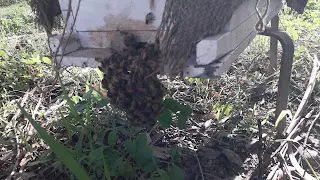Beekeeping is an exciting and rewarding activity
that has been gaining popularity in recent years. Not only is it a great way to produce your own honey, but it also helps save the environment by supporting the pollination of plants. In this article, we will explore the world of beekeeping, including the benefits, challenges, and best practices for starting your own hive.
Before we dive into the details, let's first define what beekeeping is. Beekeeping is the practice of maintaining colonies of bees in hives, with the goal of producing honey, beeswax, and other products. These products are not only delicious, but they also have a range of health benefits. Honey, for example, is rich in antioxidants and can help soothe sore throats and coughs.
One of the biggest benefits of beekeeping is its impact on the environment
Bees are critical pollinators, and without them, many plants would struggle to reproduce. In fact, bees are responsible for pollinating roughly one-third of all the food we eat, including fruits, vegetables, and nuts. By keeping bees, you are helping to support the environment and ensure the sustainability of our food system.
But beekeeping is not without its challenges
One of the biggest hurdles for beginner beekeepers is learning how to properly manage a hive. Bees are delicate creatures, and it takes time and patience to understand their behavior and needs. Additionally, beekeeping requires a certain level of investment, both in terms of time and money. You will need to purchase equipment, such as hives and protective gear, and be prepared to commit to regular maintenance and inspections.
Despite these challenges, beekeeping can be a highly rewarding and enjoyable activity. In addition to producing your own honey, you will also gain a deeper understanding of the natural world and the role that bees play in our ecosystem. You may also find that beekeeping fosters a sense of community, as many beekeepers enjoy sharing their knowledge and experiences with others.
If you are interested in starting your own hive, here are some best practices to keep in mind:
Do your research: Before you start beekeeping, be sure to educate yourself on the basics. Read books, attend workshops, and talk to other beekeepers to gain a solid understanding of bee behavior, hive management, and beekeeping equipment.
Choose a location: Your hive should be situated in a location that provides access to water and sunlight, while also being protected from wind and rain. Additionally, it is important to consider the safety of your neighbors and the general public.
Purchase quality equipment: Invest in high-quality equipment, such as hives and protective gear, to ensure the health and safety of your bees.
Practice good hive management: Regular inspections and maintenance are crucial to the health of your hive. Keep a close eye on your bees, and be prepared to take action if you notice any signs of disease or distress.
By taking the time to educate yourself and invest in quality equipment, you can enjoy the rewards of producing your own honey while also helping to support the sustainability of our food system. So why not give beekeeping a try? Your taste buds and the planet will thank you.

